1109 5th Ave at 92nd St
New York, NY 10128
Directions
Plan your visit to the Jewish Museum and discover the intersection of art and Jewish culture Learn More
The Jewish Museum is open with free Saturday admission 11 am - 6 pm. Please review visitor policies.
The Jewish Museum is open with free Saturday admission 11 am - 6 pm. Please review visitor policies.
1109 5th Ave at 92nd St
New York, NY 10128
Directions
Plan your visit to the Jewish Museum and discover the intersection of art and Jewish culture Learn More
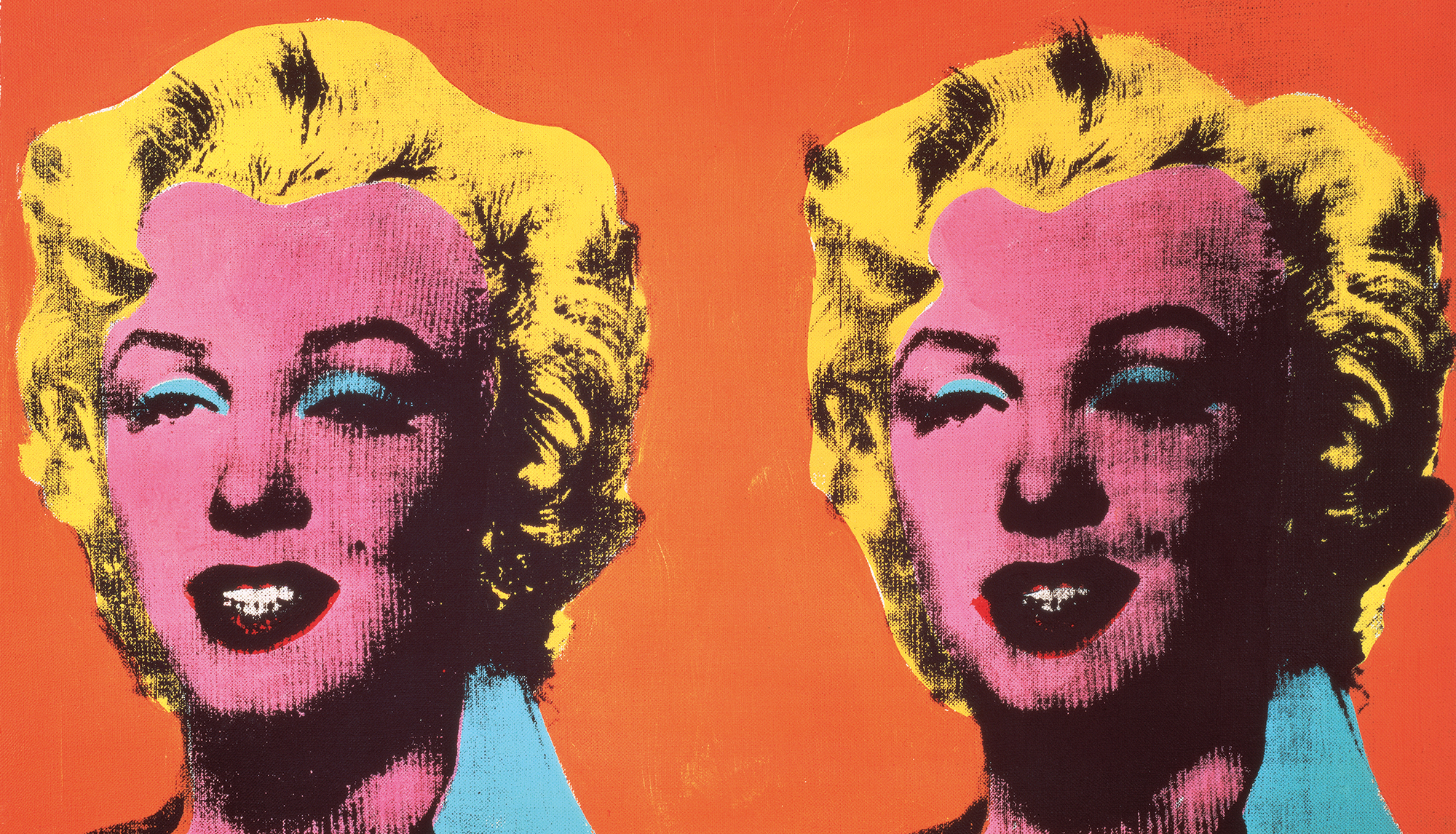


The Jewish Museum’s rising attendance and membership rates—and the sheer buzz in the galleries during The Hare with Amber Eyes and Jonas Mekas: The Camera Was Always Running—show a renewed appetite for getting out and about and re-connecting with the Museum.
It’s an auspicious time to do so. Our next exhibition, New York: 1962–1964, was conceived by the renowned curator, critic, and art historian Germano Celant, who died of Covid early in the pandemic. When we invited Germano to curate this exhibition in 2017, we entrusted him with an important period in the Jewish Museum’s history, the years between 1962 and 1964, when it was at the center of the art scene in New York and hosted groundbreaking exhibitions including the first-ever museum retrospectives of Jasper Johns and Robert Rauschenberg. This rare, full-Museum show captures the pulse of the city at this time.
Remember the last restaurant meal you had before the pandemic? Mine was at Russ & Daughters with Gary Tinterow, Director of the Museum of Fine Arts, Houston. We discussed the potential for collaboration. A product of that lunch conversation is Beauty and Ritual: Judaica from The Jewish Museum, New York, opening this July in Houston, Texas. The project gives our world-renowned collection greater exposure and introduces us to new audiences in the country’s fourth-largest city.
None of this happens without the generosity of members and donors like you. Thank you, as always, for your support.
With warm regards,

Claudia Gould, Helen Goldsmith Menschel Director
Recently opened in Scenes from the Collection, Coney Island showcases photographs of the famed amusement park from the late 1930s through the late 1950s by Martin Elkort, Morris Engel, Sid Grossman, Sidney Kerner, Arthur Leipzig, and Leon Levinstein, along with two “Coney Island” style carousel horses created by master carvers Charles Carmel and Marcus Charles Illions.
This new installment in the Jewish Museum's Television and Beyond series in Scenes from the Collection brings together excerpts from television and streaming programs from 1974 to 2020 such as Rhoda, Will & Grace, The Nanny, Sex and the City, New Girl, and Unorthodox, among others, that illustrate the depth and the range of television depictions of this important life-cycle event.
EXPLORE SCENES FROM THE COLLECTION
New York: 1962-1964 explores a pivotal three-year period in the history of art and culture in New York City, examining how artists living and working in New York responded to their rapidly changing world, through more than 150 works of art—all made or seen in New York between 1962 - 1964.


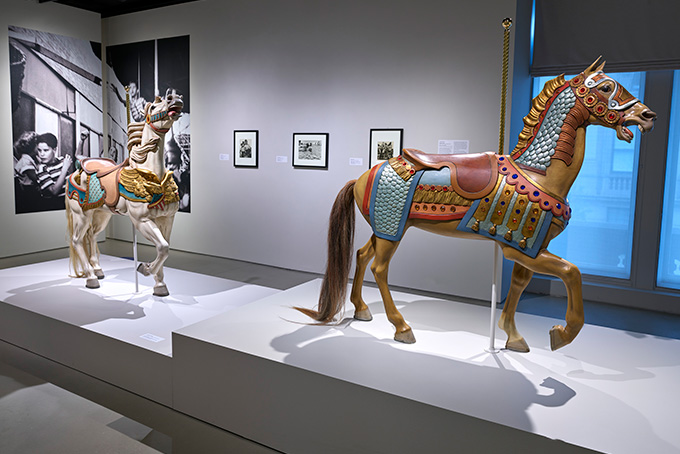
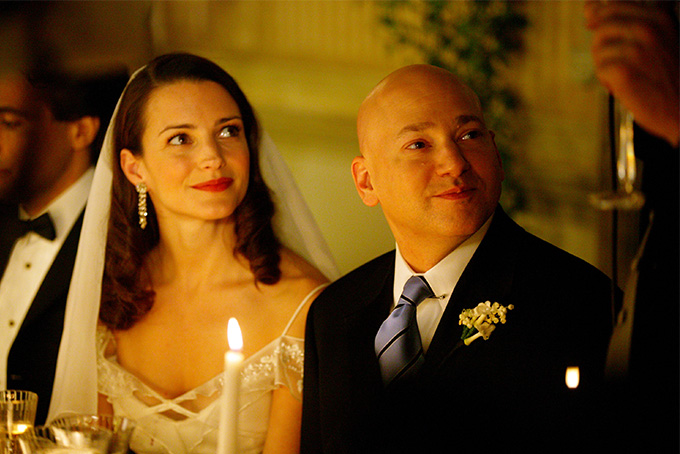
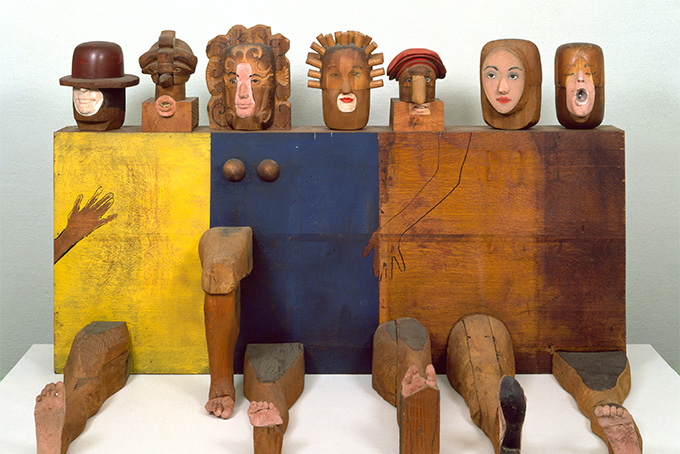
For the upcoming exhibition New York: 1962-1964, the Jewish Museum was honored to work with world-renowned curator, critic, and art historian Germano Celant. Celant was approached in 2017 by the Museum to address its influential role in the early 1960s New York art scene during a momentous period in American history. The resulting exhibition uses the Jewish Museum’s role as the jumping-off point to examine how artists living and working in New York City responded to the events that marked this moment in time.
This exhibition was the last project conceived and curated by Celant—he passed away from Covid in 2020. But there was a team of people who worked to bring his vision for New York: 1962-1964 to life. In these audio tracks, hear from Michael Rock, longtime Celant collaborator and founding partner and executive creative director of design firm 2x4, who designed the exhibition's visionary catalogue and graphic identity; and Annabelle Selldorf, founding principal of Selldorf Architects, who designed the exhibition's dynamic, immersive environment.
Download transcripts for Annabelle Selldorf and Michael Rock.


Broadening and enriching the collection with new acquisitions of art—including paintings, sculpture, photography, and Judaica—is at the core of the Jewish Museum’s mission. The Museum was founded with a gift of ceremonial art from Mayer Sulzberger to the Jewish Theological Seminary in 1904. The Jewish Museum’s collection now spans 4,000 years of art and Jewish culture through nearly 30,000 objects from around the world, from ancient artifacts to cutting-edge contemporary art.
Known today as the grand dame of contemporary sculpture, Nevelson was raised in an immigrant Ukrainian Jewish household in Rockland, Maine, where her father and brother both worked as woodcutters. In the 1940s she gravitated toward building wood sculptures, perhaps influenced by the family lumber business. Her large-scale assemblages composed of discarded wood and household objects and coated in monochromatic paint, transformed the detritus she found on New York City streets into abstract monuments to the sublime. “When I fell in love with black,” Nevelson explained, “it was an acceptance. Because black encompasses all colors. Black is the most aristocratic color of all. You can be quiet and it contains the whole thing.”
This splendid matzah cover, woven by the trailblazing artist Anni Albers, highlights the influence of modernism on traditional forms of Judaica. The textile features brilliant gold, blue, and green fibers woven into horizontal and diagonal bands, on top of which Albers embroidered the Hebrew word “matzah” in gold metallic thread. The embroidery signals the ritual function of the object: holding the three pieces of unleavened bread that are placed at the center of the Passover table. A rare example of Jewish ceremonial art created by Albers, the work was commissioned in 1959 by the artist’s friends Elaine Lustig Cohen, a pioneering graphic designer and painter who worked on the Jewish Museum’s branding in the 1960s, and her husband Arthur Cohen.
Lillian Bassman’s early intention was to be a dancer, and she kept her eye for the grace in female movement that, she once said, “usually passes unnoticed in everyday life.” Her use of high contrast between her subjects and their clothes was unique at the time, allowing for a more artistic approach in an industry that traditionally had stringent formats. This was noted by Richard Avedon—one of numerous photographers whose careers she helped launch—who said she made “visible that heartbreaking invisible place between the appearance and the disappearance of things.” Indeed, her move toward a greater abstraction in her fashion photography privileged graphic art over material product to the point of being subversive, which prompted even her mentor Alexey Brodovitch, the ultra-rules breaker of photography, to note how “dangerous” her work was. Bassman was an innovator in the dark room, becoming even more radical when a cache of her fashion photography negatives were rescued by chance in the 1990s, and she began to reinterpret them later in life. This photograph was recently featured in the Jewish Museum’s exhibition Modern Look: Photography and the American Magazine (2021).
The multimedia practice of Dor Guez explores how family history intersects with major world events. Guez was born in Jerusalem to a Palestinian family on his mother’s side and Jewish immigrants from North Africa on his father’s. Belly of the Boat uses objects associated with his paternal grandparents, who escaped from concentration camps in Nazi-occupied Tunisia and immigrated to Israel in 1951, to evoke their journeys and experiences. Personal items, including his grandmother’s buttons, an inkwell, a vase, and a spice container, are displayed in museum-style vitrines that illuminate fragments of a family story and a little-known, nearly vanished culture. Key to Guez’s research is the role language plays in both shaping new identities and holding onto the past. A manuscript written by his grandfather in his Tunisian Judeo-Arabic dialect is the basis of several wall works in the suite of prints. The papers were damaged in transit, so that, as Guez writes, “the words are engulfed in abstract spots, and these become a metaphor for the harmonious conjunction between two Semitic languages, between one mother tongue and another, and between homeland and a new country.” Through these works, which were commissioned for the Jewish Museum’s recent exhibition, Afterlives: Recovering the Lost Stories of Looted Art (2021-2022), the artist investigates the hidden chapters, subversive undercurrents, and present-day contexts of his own family’s unique story.
Inspired by a personal family heirloom, Haim Steinbach created this conceptual portrait of the Jewish Museum by designing a new context for six collection objects that survived the Holocaust. Among these items are a wooden dreidel and gilded Purim noisemaker that fortuitously escaped Germany in 1939, as well as an angel fragment from a lamp in the Bavarian Schnaittach synagogue, which was desecrated during Kristallnacht. Other featured objects include a Palm cup surrendered to the Nazis by Lina Neuburger, a Jewish woman who later perished at Auschwitz, and a brass pendant likely given by Manfred Ehrlich to his mother before they were imprisoned in Theresienstadt. The white space at the center of the work—a void—reminds us of loss and the stories these objects hide.
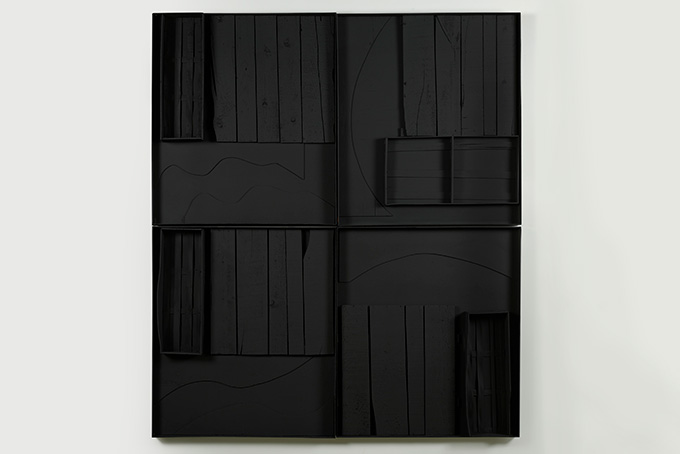
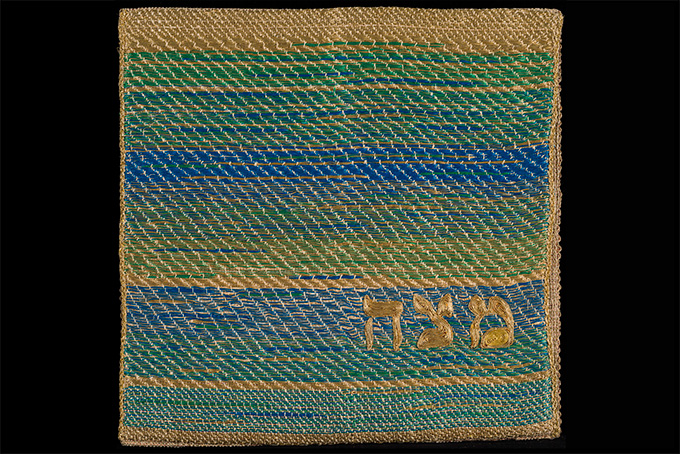
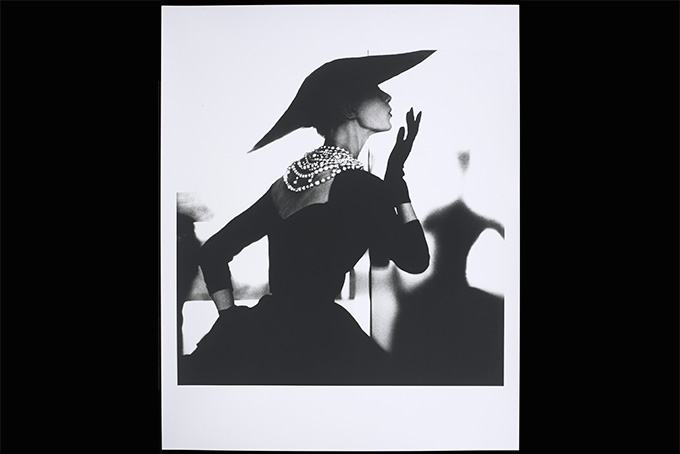
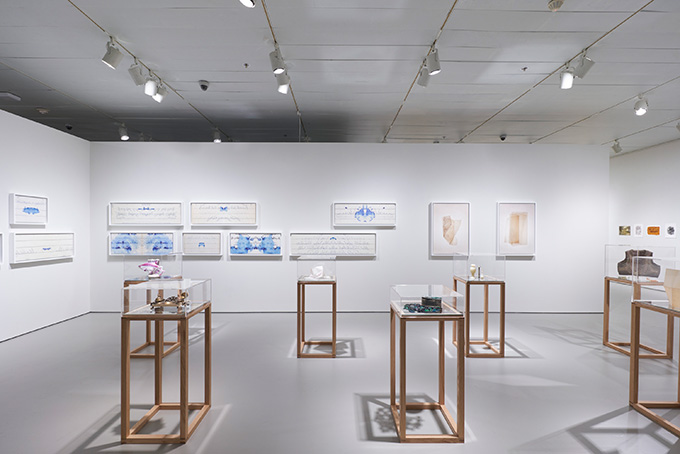
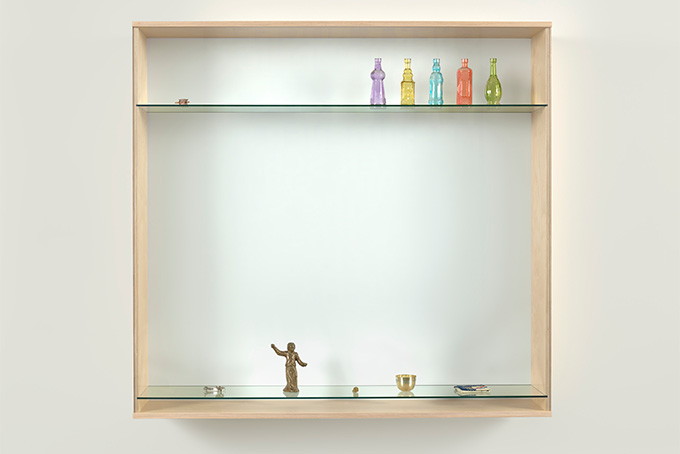
Jewish Museum members are always among the first to experience new exhibitions—before they open to the public. Keep an eye out for special invitations via email to private previews for a memorable first look at the Museum’s groundbreaking shows.
New York: 1962-1964
Thursday, July 21, 2022
11 am - 6 pm
Preview the exhibition by reserving your timed member ticket for July 21, 2022.
Tuesday, August 9, 2022
The Jewish Museum cordially invites members to a private virtual lecture on Beauty and Ritual: Judaica from the Jewish Museum, New York led by the Jewish Museum’s Curator of Judaica, Abigail Rapoport, and Guest Curator Warren Klein.
Explore Jewish ceremonial art from across the world, spanning ancient to contemporary Judaica, from exquisite pieces of silver that adorn the Torah to one-of-a-kind Hanukkah menorahs (menorot). This lecture presents an in-depth look at highlights from the exhibition, sharing unique stories of the beauty and ritual of Jewish ceremonial art. Beauty and Ritual marks the first presentation in a partnership between the Museum of Fine Arts, Houston, and the Jewish Museum.
Sunday, October 30, 2022
Scheuer Auditorium
Email invitation coming soon
Curator’s Choice Lectures are returning in-person in the fall for Friend Members and above. Join us for an exclusive behind-the-scenes account of New York: 1962-1964 with Darsie Alexander, Senior Deputy Director and Susan & Elihu Rose Chief Curator. Watch your inbox for an invitation!
To learn more about Membership options and upgrade your membership, visit TheJewishMuseum.org/Membership.
Give or send a beautiful gift for weddings, bar or bat mitzvahs, births, or any occasion, from the Jewish Museum Shop. Members receive 10% off shop purchases all year long. Visit the Cooper Shop at the Jewish Museum, or browse unique finds online at Shop.TheJewishMuseum.org.
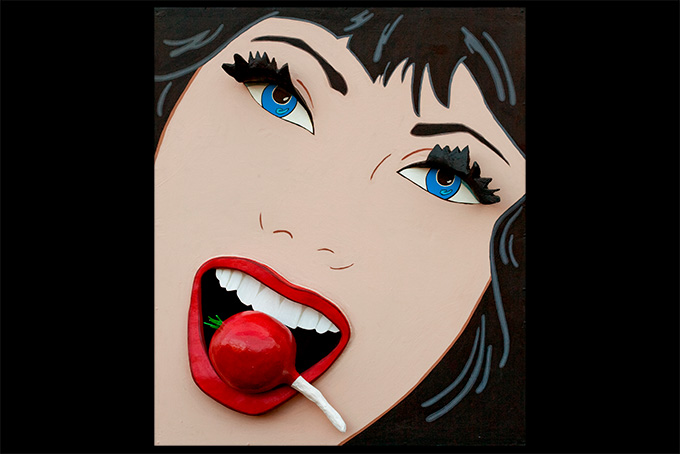
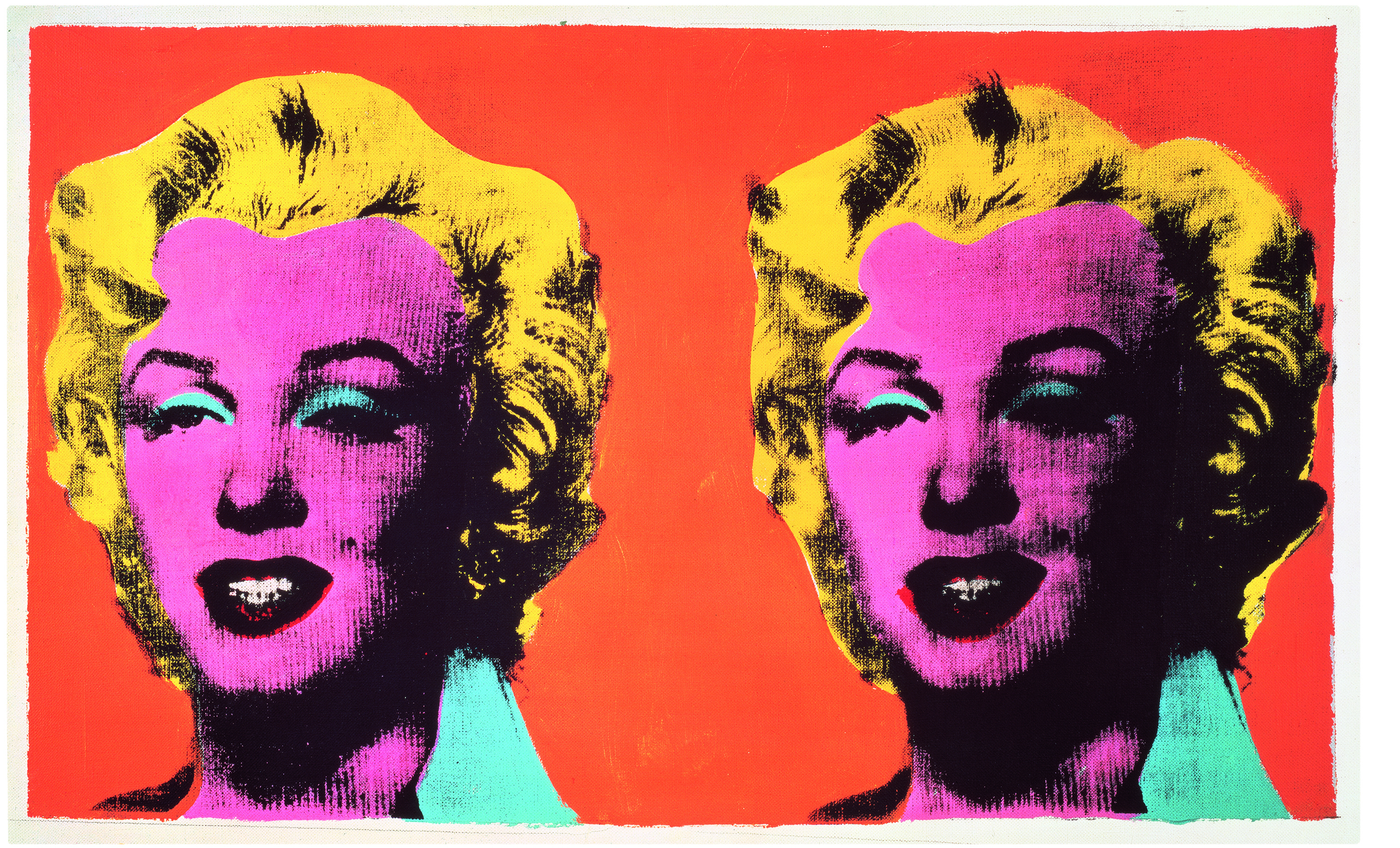
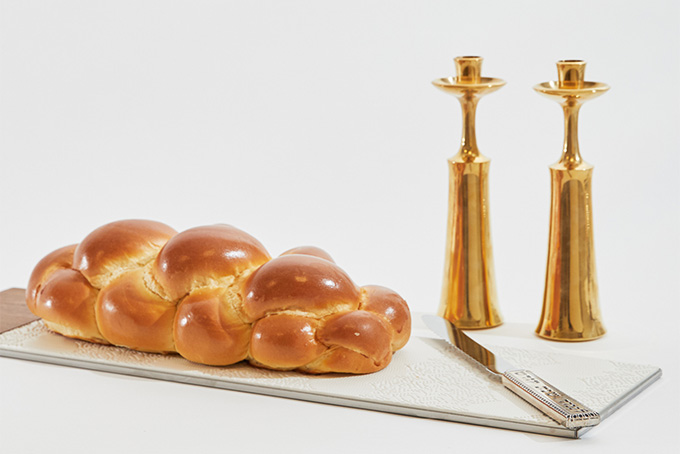
This summer, in conjunction with New York: 1962-1964 , the Jewish Museum is partnering with Film Forum and Film at Lincoln Center to present programming around the city.
From July 22 to August 11, Film Forum presents "1962…1963…1964," including 36 films showcasing a moment in movie history that saw the last gasps of the Hollywood studio system, some of the best work of veteran filmmakers (David Lean, Luis Buñuel, Elia Kazan, Alfred Hitchcock), and a cinema re-invigorated by a new generation that included Stanley Kubrick, Federico Fellini, Jean-Luc Godard, François Truffaut, Roman Polanski, Jacques Demy, Sergio Leone and Francis Ford Coppola. Screenings include Dr. Strangelove, Lawrence of Arabia, 8½, Jules and Jim, The Umbrellas of Cherbourg, A Hard Day's Night, Cape Fear, Knife in the Water, Contempt, Cleopatra, Diary of a Chambermaid, and many others.
From July 29 to August 4, Film at Lincoln Center presents "New York, 1962-64: Underground and Experimental Cinema," focusing on this rich period of truly independent cinema, unencumbered by the medium's aesthetic conventions and commercial imperatives. The series will feature key films by Kenneth Anger, Shirley Clarke, the Kuchar Brothers, Marie Menken, Jonas Mekas, Carolee Schneemann, Jack Smith, Andy Warhol, and others, including Scorpio Rising, Flaming Creatures, The Cool World and much more.
July 22 - August 11, 2022
Film Forum
209 West Houston Street, NYC
$11 Jewish Museum members use online code SIXTIES, or present membership card at box office
$15 General Public
$11 General Public with ticket stub from related series at Film at Lincoln Center
July 29 - August 4
Film at Lincoln Center
Elinor Bunin Munroe Film Center, 144 W. 65th Street, NYC
$10 Jewish Museum Members use online code WARHOL, or present membership card at box office
$15 General Public
$11 General Public with ticket stub from related series at Film Forum


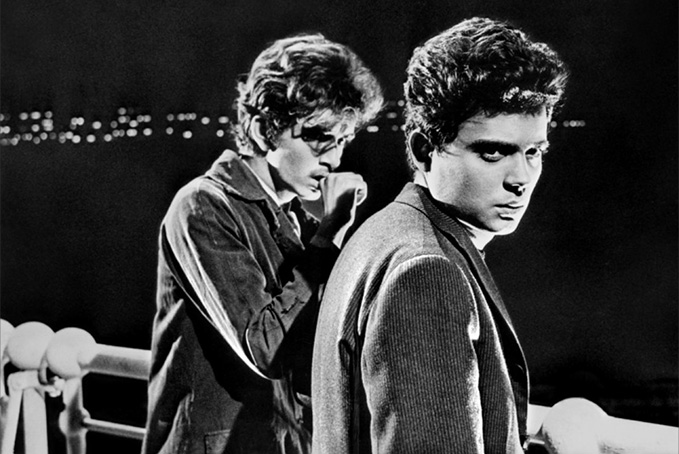
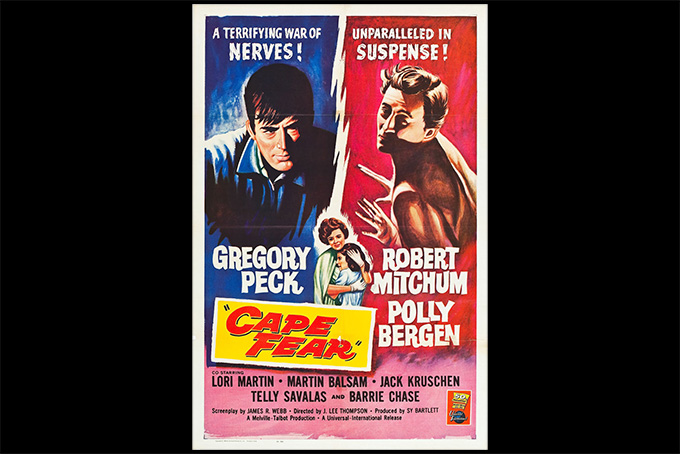
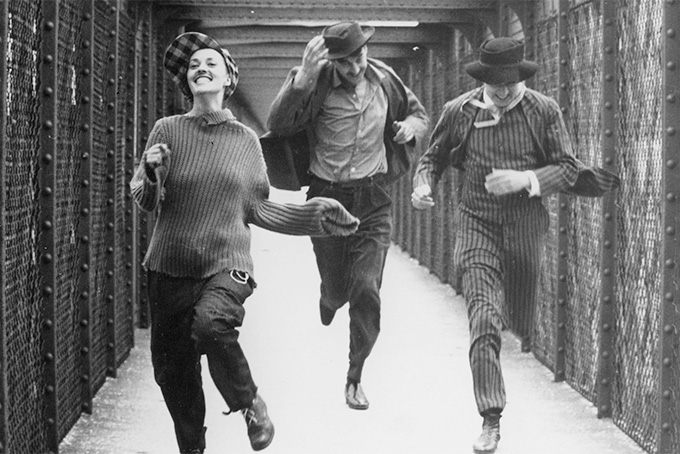
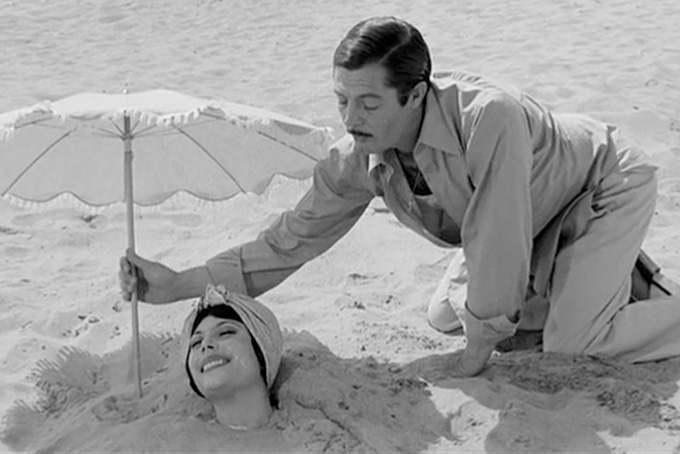
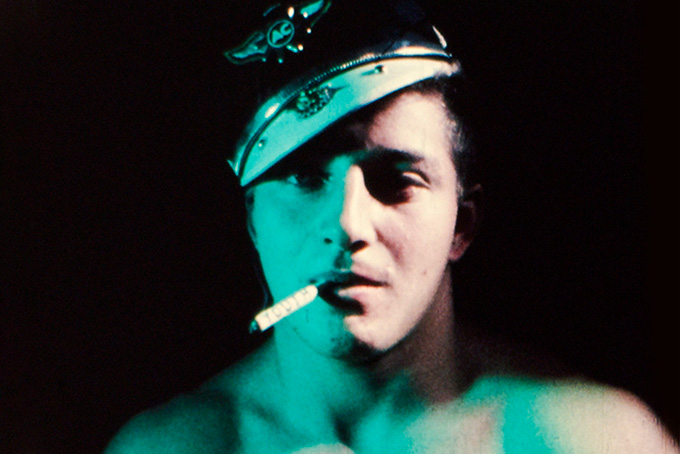
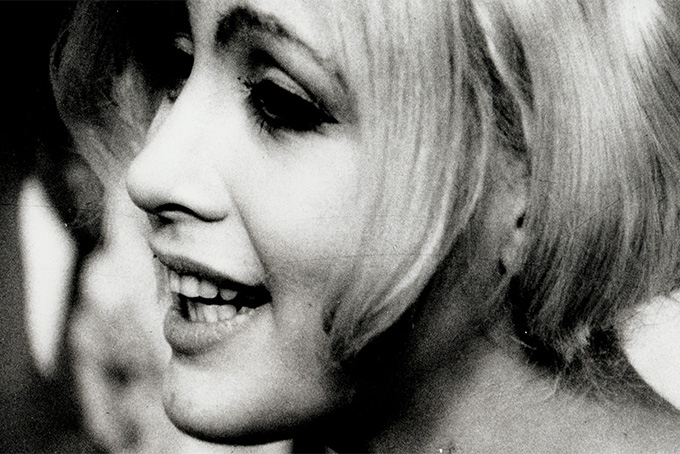
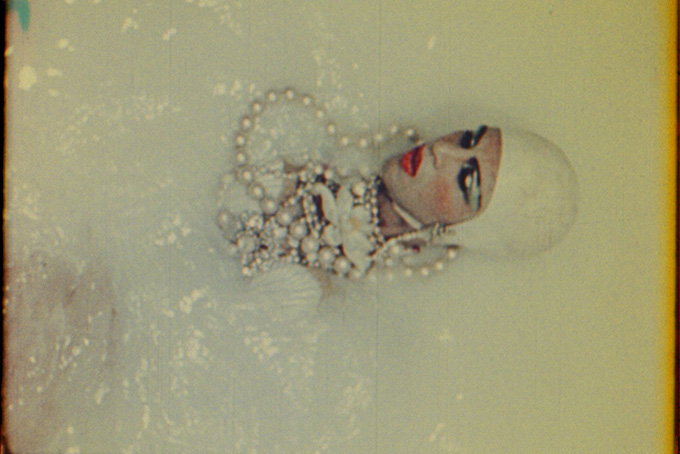
This year, the Jewish Museum’s Family Programs engaged kids and families both locally and nationally through hands-on virtual workshops, concerts presented via the Museum's YouTube channel, in-person family events held at the Museum, and more.
A diverse range of award-winning musicians from across the country shared their original tunes in YouTube Premiere Concerts, starting in the fall with Under One Sky: Concert for Sukkot, which featured multiple artists performing songs that celebrate nature. Josh and the Jamtones presented a Virtual Hanukkah Concert, and later in the season, popular musical duo Nefesh Mountain regaled at-home audiences with A Bluegrass Concert for All Ages. Other highlights include The Pop Ups Virtual Family Concert, which was presented in time for Purim, and the swinging tunes of singer and instrumentalist Jazzy Ash, who performed for Earth Day, and whose rendition of Green Grass Grows All Around is available to watch anytime.
Explore the full Kids & Family Programs Playlist on the Jewish Museum’s YouTube channel for more virtual concerts, art workshop videos, and more.
Keep kids active and engaged during the summer months with a range of At Home Art Activities developed by the Jewish Museum. These printable PDFs provide inspiration and instruction to create art as a family using materials available at home, and include projects such as object sculptures, painted portraits, and print-making with everyday treasures, including the new Scenes from the Collection Kids Gallery Guide, updated to include Coney Island, a recently installed exhibition featuring carousel horses carved in the Coney Island style.
In April 2022, in celebration of the Passover holiday, the Museum held its first in-person Family Concert since March 2020. Performer ShirLaLa sparked a lively dance party with live-projected illustrations and tambourines to shake to the tunes of ShirLaLa and her guest musicians. More in-person experiences for families, along with virtual programs, will be offered in the coming year.
Starting July 22, as part of the Jewish Museum’s Bloomberg Connects App, families can discover an interactive guide to the exhibition New York: 1962 - 1964. The app offers a unique experience featuring the art of Robert Rauschenberg, Marisol, Louise Nevelson, and other notable artists, allowing families to navigate the exhibition through movement activities, engaging questions, and hunts for details. A companion “artist sketchbook” guide for New York: 1962 - 1964 will be available at the Museum, offering drawing activities for both children and adults.
Visit the full Family Programs Calendar later this season to learn more about upcoming fall programs.


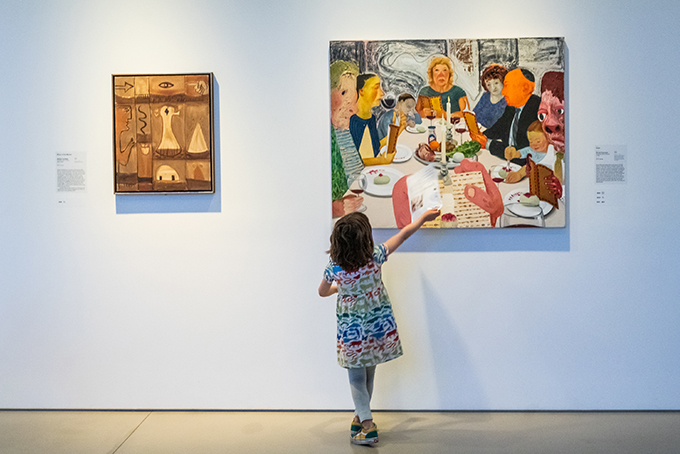
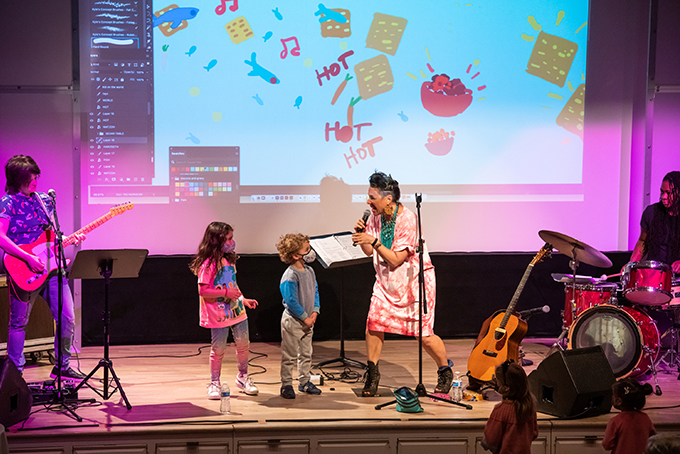
The Jewish Museum's 36th Annual Purim Ball was held on April 6, 2022, at the Park Avenue Armory, an historic National Guard building located on New York City's Upper East Side.
During the course of the evening, celebrated ceramicist and author Edumund de Waal, whose 2010 memoir The Hare with Amber Eyes was transformed into a critically-acclaimed exhibition at the Jewish Museum, was recognized for his remarkable artistic achievements, and trustee and former Board Chairman Axel Schupf was honored for his nearly 40 years of exceptional service and dedication to the Museum. Later, attendees enjoyed dessert, drinks, and dancing at the exuberant Purim Ball After Party, hosted by the Jewish Museum's Young Patrons.
For more information about the Jewish Museum's annual gala, please visit TheJewishMuseum.org/PurimBall2022.
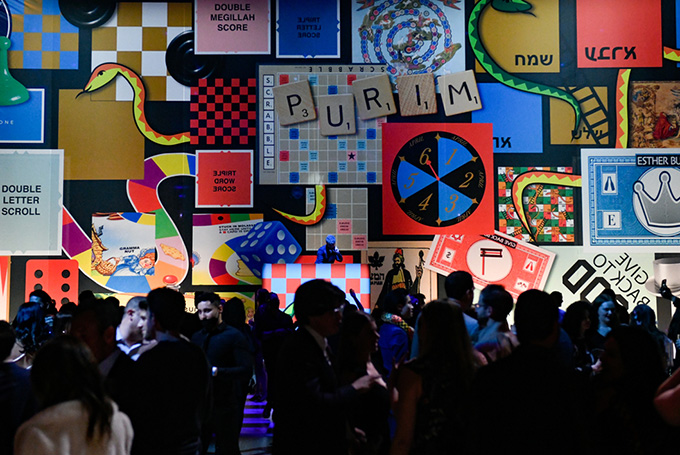
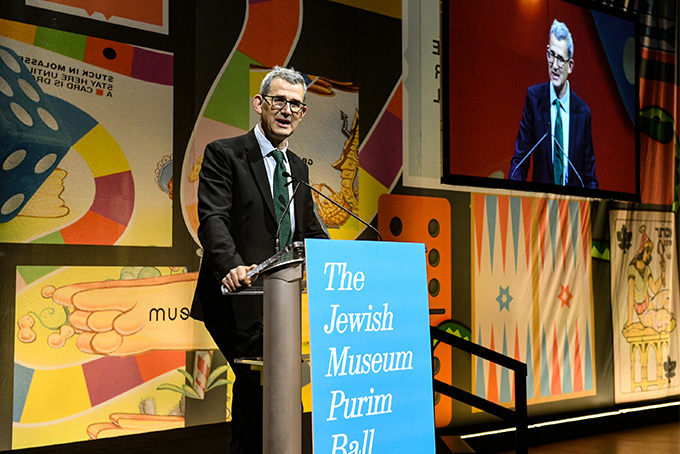
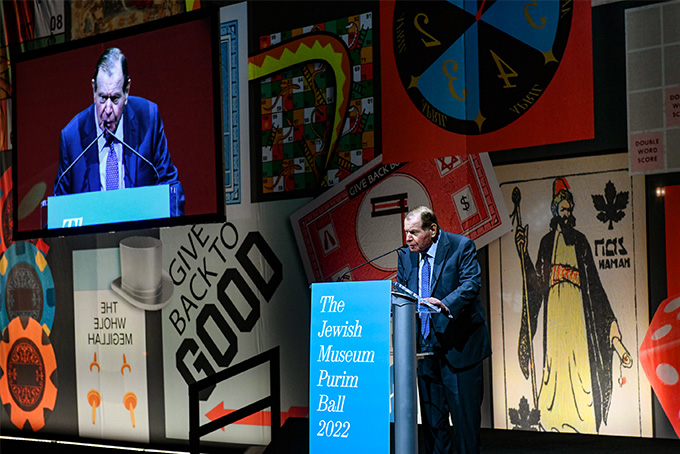
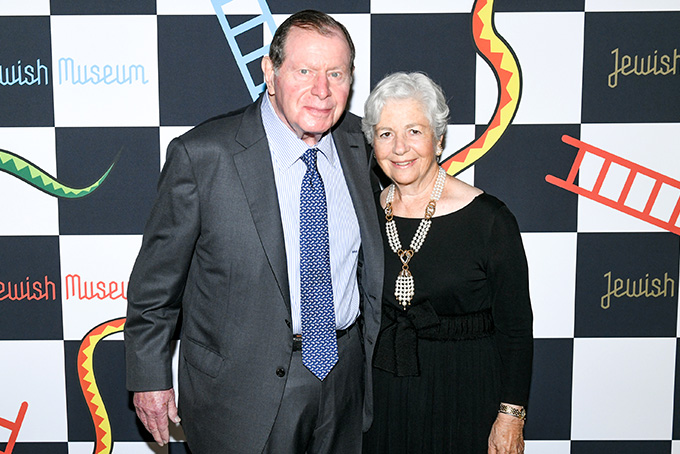
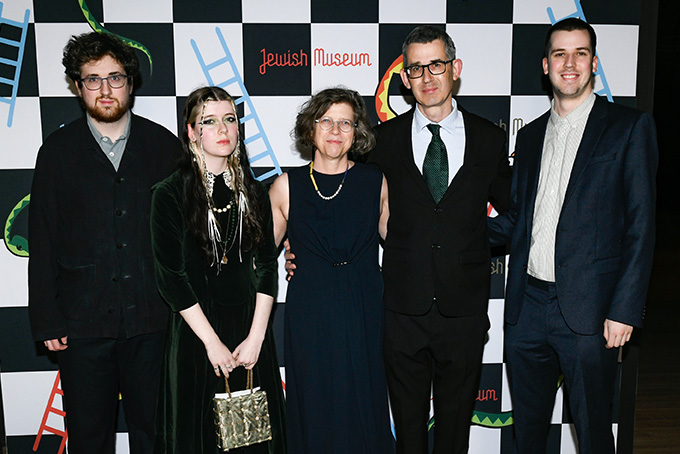
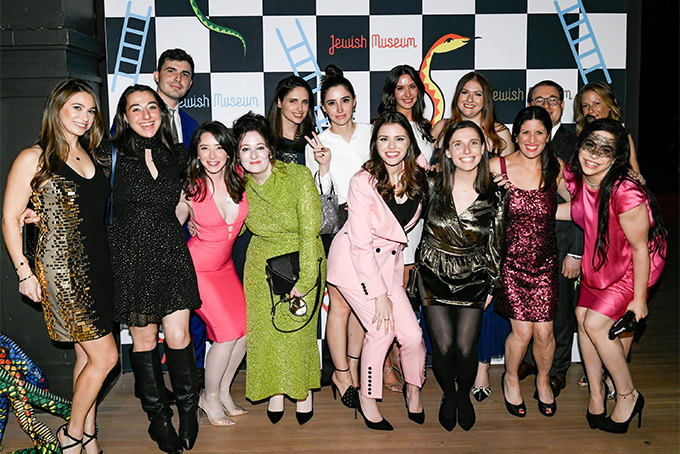
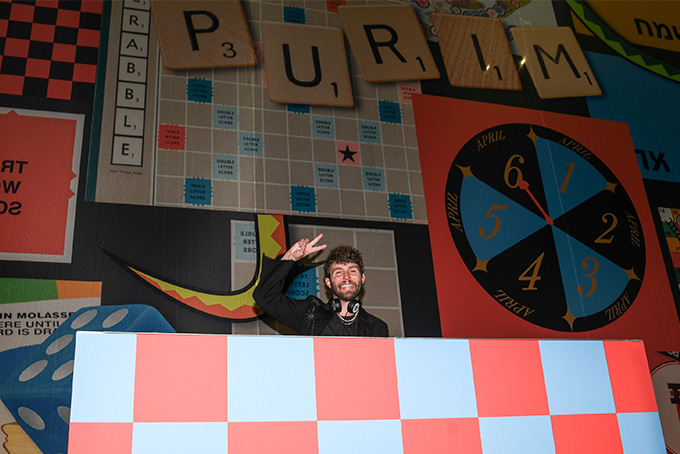
The Jewish Museum is housed in the historic Warburg Mansion, designed in the French Gothic chateau style in 1908. The building served as the private home of Felix and Frieda Schiff Warburg for many years. The Warburgs were ardent philanthropists and proponents of the arts. In 1944, Frieda Warburg made an iconic and generous commitment to the arts when she donated the Mansion to become a museum of art and Jewish culture.
To honor the Warburg family tradition of giving, the Jewish Museum has created the Warburg Society—a special group of vital supporters who provide for the institution’s future by incorporating it into their legacy through a planned gift or bequest. Warburg Society members have a profound impact on the Jewish Museum’s compelling exhibitions and unparalleled educational programs.
To learn more about the Warburg Society, or to plan a personal consultation, kindly contact Allison Curran, Director of Institutional and Major Gifts, at 212.423.3334 or via email at acurran@thejm.org.
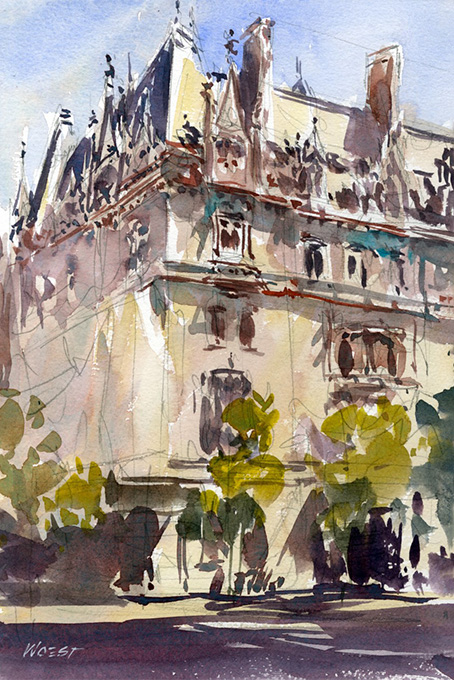
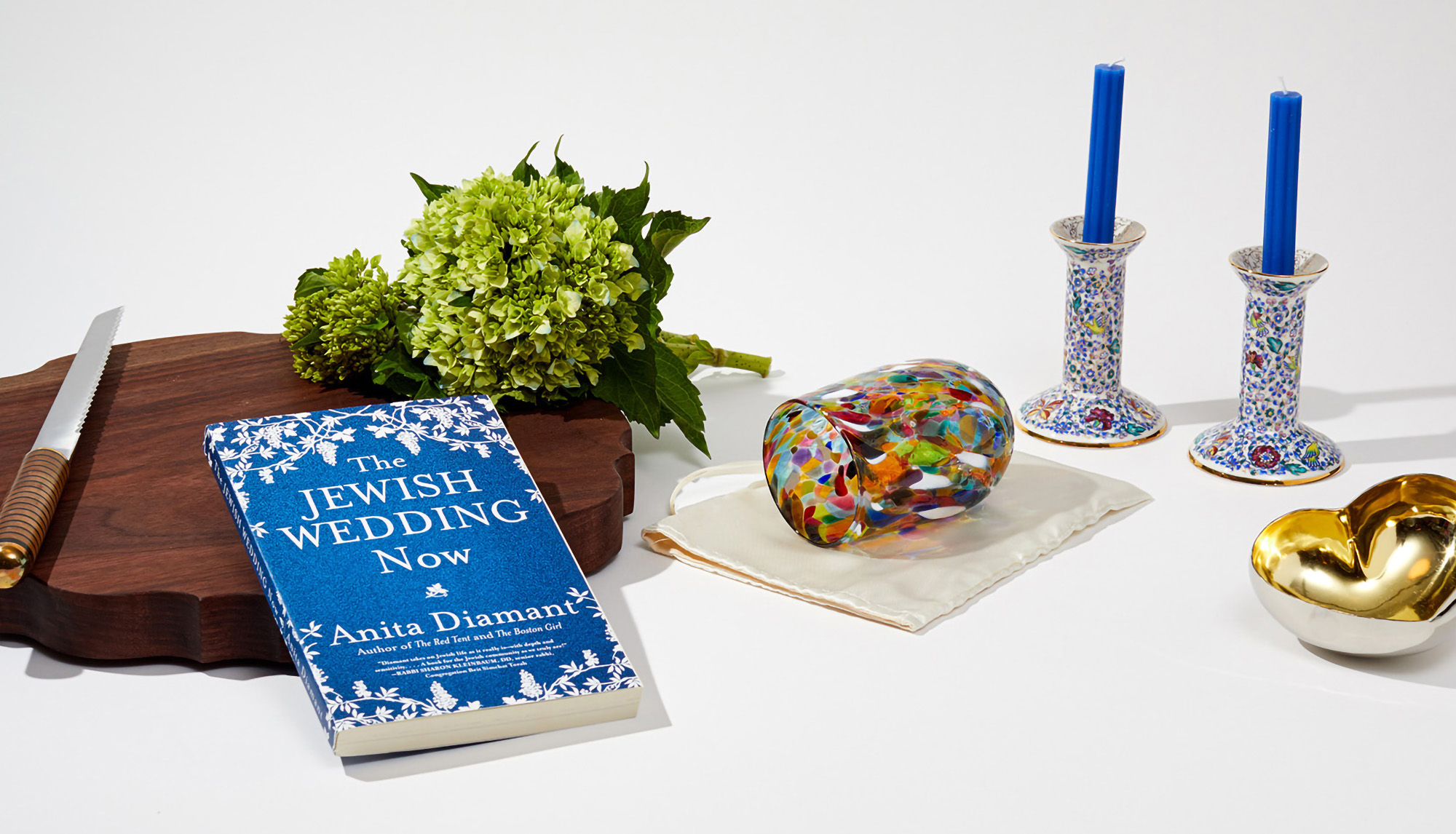
Celebrate the couple on their special day with a memorable gift from the Jewish Museum Shop. From distinctive Judaica and ceremonial objects to one-of-a-kind housewares, choose from must-have items for their new life together.
Every Shop purchase supports the Jewish Museum.
Shown above:
Walnut Challah Board by Selby and Co.
Price: $425
Members: $382.50
The Jewish Wedding Now by Anita Diamant
Price: $18
Members: $16.20
Wedding Smash Glass by Shardz: Rainbow
Price: $38
Members: $34.20
Garden of Eden Candlesticks by Zvezdin's Workshop
Price: $350
Members: $315
Heart Dish by Michael Aram (Small)
Price: $55
Members: $49.50 (in-store at the Cooper Shop only)